Just a few years ago, planning for retirement may not have been in the forefront of your mind. But the Covid years threw us all for a loop. During a global pandemic, our personal and professional lives have shifted. Our workspaces look different than they did prior to 2020, and our finances might look different, too.

For many people, this turbulent time triggered movement towards big life changes – renovating a home, moving into a new one, shifting career paths, or thinking more seriously about retirement. Maybe you are already close to retiring, or are leaving your current position and need to determine if you can take on your entrepreneurial passion project rather than work for someone else. For any and all of these ventures, you need to lay the groundwork with solid financial planning, including withdrawing or investing your money using a tax strategy that makes sense in the present and for the future.
Retirement Planning Considerations in NC
Changing careers or retiring means that you likely will move or use money from your old retirement account. With these financial decisions on the horizon, you could consider any of the following:
- Roll over the money in your old 401k / 403b into a new investment account, such as an IRA, and then continue to save for retirement at your new job.
- Leaving your retirement money where it is – with your old employer – and then continue saving for retirement at your new job. Alternatively, see if you can roll it into your new employer plan and consolidate accounts.
- Convert the account to a Roth IRA. This causes full taxation, so seek guidance for this one! We can do a full focus on the tax and growth strategy of your account to see if a Roth conversion makes sense for you.
- Using your retirement savings to make a gamble on that new business you’ve dreamed of starting. Advisor alert! There are many variables to consider when making this leap. We’d recommend a Financial Advisor, CPA, and maybe even an attorney to help you work through this option.
- Taking distributions from your old 401k while you figure out what to do next.
Tax Benefits of Retirement Planning in NC
With all of these options, tax concerns (such as the efficiency of your withdrawals) will come into play. You’ll want to be prepared to handle these concerns in a way that supports your dreams for retirement or a career change.
North Carolina Retirement Planning Services
In deliberations about career and retirement, time is money. If you wait until the year you retire to seek guidance on your finances, you may have fewer attractive options than if you dig into financial planning four or five years before you retire or leave your current position. The same is true for individuals who work for themselves and lack the structure of a company retirement or pension plan.
In this case, an impending career move can be a time to accelerate your retirement savings and investments, but it’s best to start planning for this a few years out. The options for retirement plans are diverse – 401k, IRA, Roth IRA, Deferred Compensation, Pension – and understanding your options can be challenging. Finding a trusted financial advisor is a proactive step in knowing what you have and determining how it can best work for you.
Erickson Advisors Financial Planning Services in NC
Here’s an overview of the Erickson Advisors Now Financial Planning approach:
- Holistic and nuanced planning.
- Help with organizing, prioritizing, and executing financial goals.
- An annually renewable relationship.
- Agnostic investment plans, meaning that we are flexible and focused on your goals above all else.
- Guidance in budgeting, cash flow, and debt reduction.
- Financial literacy and education.
If you’re not sure what’s next, but are positive you want to retire or change careers in the near future, get in touch. We’d love to help you take that next step.
Converting from a traditional IRA to a Roth IRA is a taxable event. A Roth IRA offers tax-free withdrawals on taxable contributions. To qualify for the tax-free and penalty-free withdrawal or earnings, a Roth IRA must be in place for at least five tax years, and the distribution must take place after age 59 ½ or due to death, disability, or a first time home purchase (up to a $10,000 lifetime maximum). Depending on state law, Roth IRA distributions may be subject to state taxes.
Consider all available options, which include remaining with your current retirement plan, rolling over into a new employer’s plan or IRA, or cashing out the account value. When deciding between an employer-sponsored plan and IRA, there may be important differences to consider – such as range of investment options, fees and expenses, availability of services, and distribution rules (including differences in applicable taxes and penalties). Depending on your plan’s investment options, in some cases, the investment management fees associated with your plan’s investment options may be lower than similar investment options offered outside the plan.
Please note that neither Erickson Advisors or Cetera Advisor Networks LLC nor any of its agents or representatives give legal or tax advice. For complete details, consult with your tax advisor or attorney.




